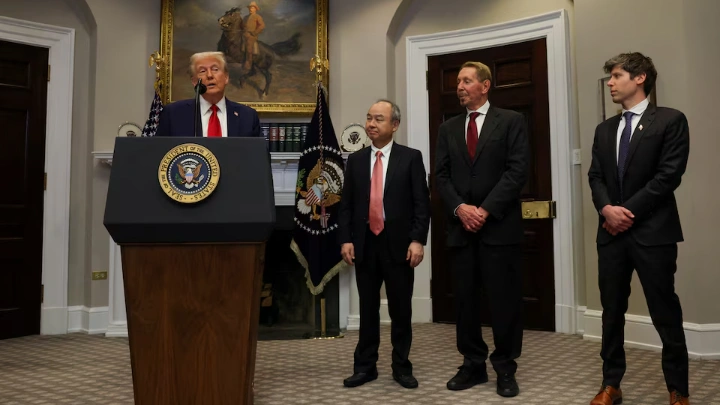Bangladesh's quantum leap: Are we on the right track to harness AI's potential?
TAZRIAN IQBAL, The Financial Express || Shining BD
In the wake of the Apple Vision Pro release, the successful wireless chip implantation in the human brain by Neuralink, and the advancements in AI chip manufacturing by NVIDIA, we now find ourselves on the precipice of an era of hyper-connectivity where our dreams of telepathy are soon to be the reality. This convergence of technologies promises to revolutionise how we interact, communicate, and live our daily lives.
While companies in the West remain laser-focused on AI applications to transform humans' lives, is AI investment feasible for Bangladesh? Venturing deeper into this realm of hyperconnectivity, we must readdress the implications it holds for the economy, society, and the essence of human interaction.
According to the Future of Job Reports 2023 published by the World Economic Forum, low- and lower-middle-income countries will continue to see higher unemployment than before the COVID-19 pandemic. This highly concerns Bangladesh since we are already grappling with a spike in the cost of living and relatively slow economic growth.
Of course, the employment rate is no exception to this inflation suffocation. The unemployment rate and our AI investment policies are linked concerns because Bangladesh is one of the world's most significant manpower hubs, exporting over 1.1m workers annually. This ensures a regular flow of remittances, contributing substantially to offsetting deficits in our balance of payments.
It is no secret that AI is predicted to replace low- to middle-wage jobs, and with the aforementioned advances in Silicon Valley, it will be sooner than expected, no doubt, throwing our labour markets into a frenzy.
As these AI progressions trickle down into the Bangladeshi economy, our manpower strength will be crippled unless public policy gets creative in terms of adaptation and integration with a customised set of formulae.
Since Bangladesh falls short in terms of public policies that think a few years ahead, AI can be a promising tool in creating said policies, considering numerous variables that come into play.
AI algorithms analyse big data sets, deciphering our behaviours and desires, and far too often, they feel like they read our thoughts to craft experiences that resonate with us on a deeply personal level.
A proven framework exists where both machine learning and natural language processing algorithms evaluate data collected from social media to show us the standing of public sentiment regarding societal, economic, health, and environmental concerns. Done in a fraction of the time and devoid of human error.
NVIDIA CEO Jensen Huang emphasises the application of AI in building the infrastructure of a developing nation, which is very valuable for our economy. Strategic AI efficiency will effectively address immediate and long-term policy concerns plaguing Bangladesh, including bureaucratic deficiencies, helping our government focus on more localised issues. Also, injecting a large chunk of funds that will have a macroeconomic impact makes more financial sense.
Moreover, investment in AI education and training will transform our healthcare system, which needs a makeover. Especially in patient care, there is no one-size-fits-all. With unparalleled personalisation and convenience enabled by our dear friend, AI can store and monitor every individual's health concerns and, in many cases, predict any scares to come as prevention. Not to mention, more sophisticated models can be developed to perform intricate surgeries.
In fact, this is the very foundation of investment for companies like Neuralink, Synchron, and Precision Neuroscience Corporation, to name a few. But this will only be possible in Bangladesh if Doctors can learn and train with AI side by side, and overseeing this may not be feasible.
When talking about storing sensitive information, a public or private set of systems must oversee and ensure Data Privacy and Security. With connectivity becoming more intimate, companies specialising in encryption, biometric authentication, and data protection will continue to thrive. As trust and security pose major concerns, we must reinforce new regulatory frameworks and compliance standards.
Like most smaller, developing nations, Bangladesh is a low-trust country. While these advancements offer incredible potential, there are some serious practical concerns surrounding consent, privacy, and the ethical use of AI, especially for the generation of technologically inept policymakers. Furthermore, there are reservations about accessibility and economic inequality, which Bangladesh already struggles with.
A new generation of policymakers needs to tap into many different arenas of expertise with a good dose of healthy optimism; amidst the AI-driven hyperconnectivity, there lies a shadow—a paradox of our own making. As we become increasingly interconnected through the digital web, we begin to lose touch with the raw authenticity of human connection. The warmth of a smile, the comfort of a shared moment, the serendipity of chance encounters—all threatened by the seductive allure of our personalised digital cocoons.
But perhaps therein lies the true challenge of this brave new world: to harness the power of technology without sacrificing the essence of our humanity.
In this future, where the lines between the real and the virtual blur and the very fabric of reality bend to our will, let us remember that the truest connections are forged not in the digital ether but in the beating hearts and shared experiences of our fellow human beings.
Shining BD























